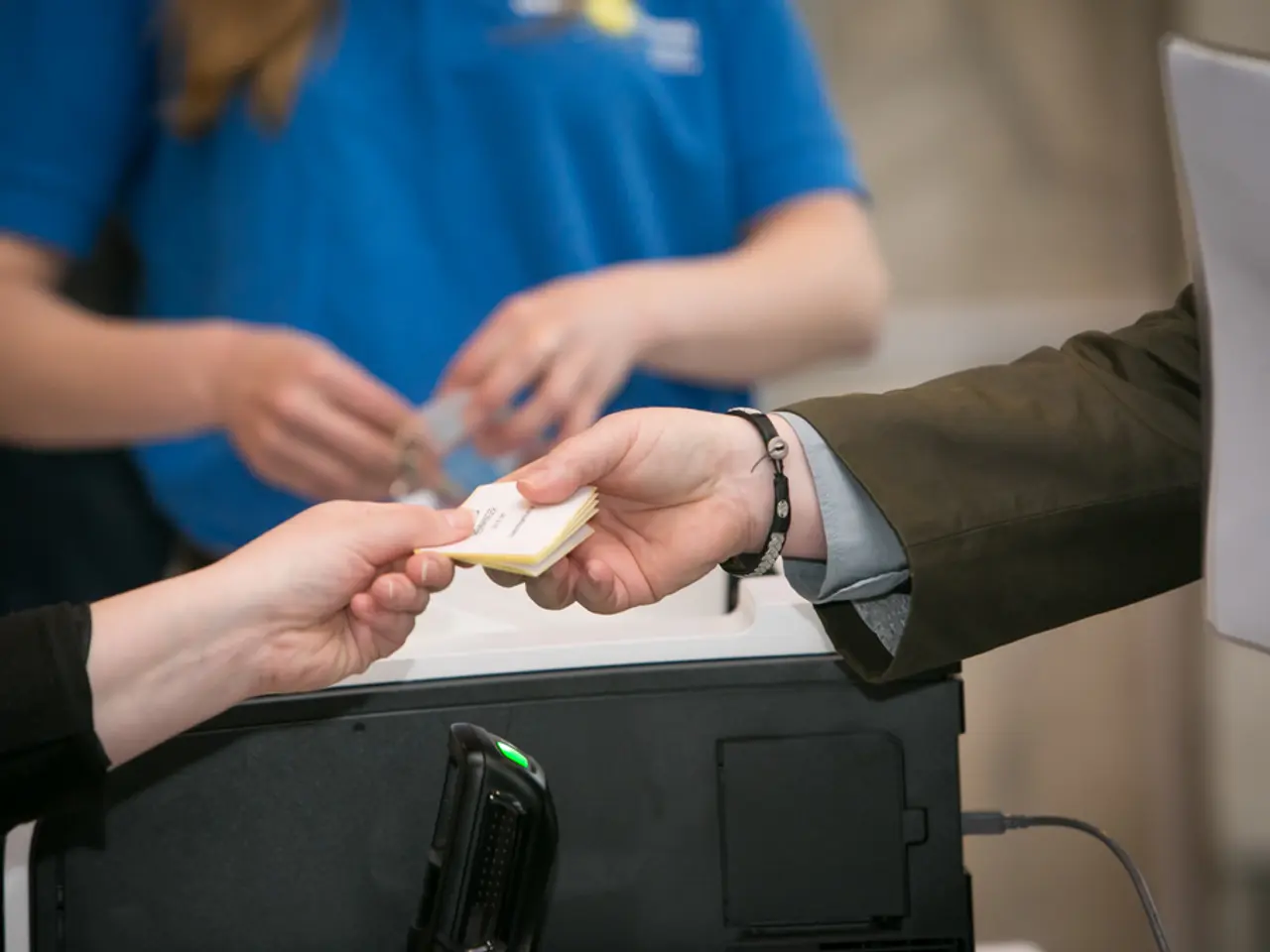Clearance granted by FDA for CardioTag Device by Cardiosense
Cardiosense's Wearable Sensor Revolutionizes Cardiac Care
The Cardiosense CardioTag device, recently granted FDA 510(k) clearance in July 2025, is set to revolutionize cardiac care as a multimodal, wearable sensor. This innovative device captures simultaneous high-fidelity seismocardiogram (SCG), electrocardiogram (ECG), and photoplethysmogram (PPG) signals, along with heart rate (HR) and pulse rate (PR).
The fusion of mechanical, electrical, and blood flow signals provides rich data inputs for AI algorithms to assess cardiac function comprehensively. Cardiosense has developed AI algorithms capable of accurately estimating pulmonary capillary wedge pressure (PCWP), a critical cardiac filling pressure metric traditionally measured invasively.
In a landmark study published in JACC: Heart Failure, the SEISMIC-HF I study demonstrated that PCWP estimates from the wearable device and AI closely match the accuracy of implantable sensors, without the surgical risks or patient burden associated with traditional methods. This development has significant implications for managing heart failure, making hemodynamic-guided care more accessible and scalable.
The CardioTag device is not only FDA-cleared for use by healthcare professionals but also for lay users, enabling home-based self-monitoring of cardiac status. The ongoing SEISMIC-HF II trial aims to expand and validate algorithm performance in heart failure patients with reduced ejection fraction, supporting broader clinical adoption and possibly clearance for the AI algorithm itself through a forthcoming De Novo classification.
SCG, a noninvasive technique that measures subtle vibrations on the chest wall associated with cardiac mechanical activity, plays a crucial role in the CardioTag's functionality. Clinical studies conducted by Cardiosense have shown that analyzing the SCG waveform alongside ECG and PPG signals can accurately assess cardiac timing intervals such as left ventricular ejection time (LVET).
The FDA clearance marks a pivotal step toward clinical adoption and broader access to pressure-guided treatment. Upon regulatory approval for the PCWP Analysis Software, the algorithm will be paired with the CardioTag device for advanced heart failure management. Cardiosense will begin exploring pilots with the CardioTag device paired with AI algorithms using the SCG, ECG, or PPG data from the device.
Omer Inan, PhD, Co-founder and Chief Scientific Officer at Cardiosense, stated that the FDA clearance marks a significant step towards bringing precision hemodynamic insights into everyday patient care. Inan also expressed that with FDA clearance, they are taking a major step towards bringing the CardioTag device into broader clinical adoption.
This fusion of advanced sensor technology with AI modeling represents a significant leap forward in noninvasive cardiac care, promising broader access to hemodynamic monitoring and improved management of heart failure and potentially other volume-related conditions. The CardioTag device, paired with AI algorithms, will be used for exploring pilots in analyzing SCG, ECG, or PPG data from the device.
Read also:
- Chest Pain Caused by Compressed Nerves: A Possibility Explored
- Weight and Plumpness: Exploring Health Consequences and Understandings
- Expectant mother resorts to marijuana for relieving morning sickness; state authorities deem her a child abuser.
- Discovering the Alleged Enhancement Method: Jelqing and Its Claimed Results






